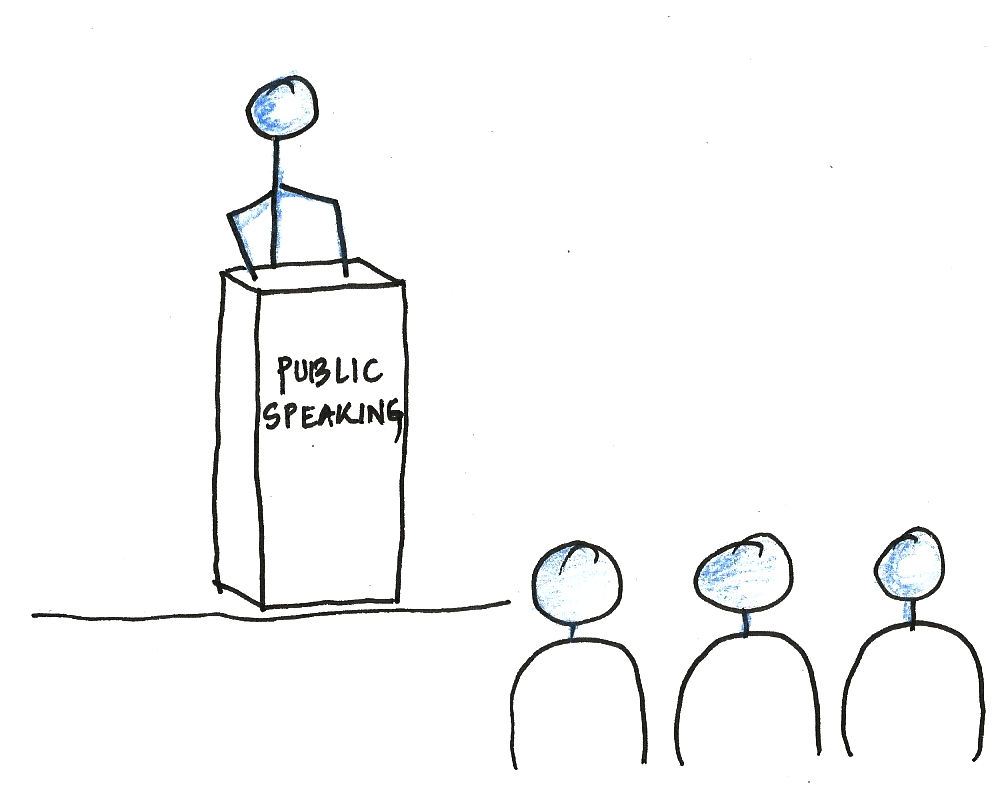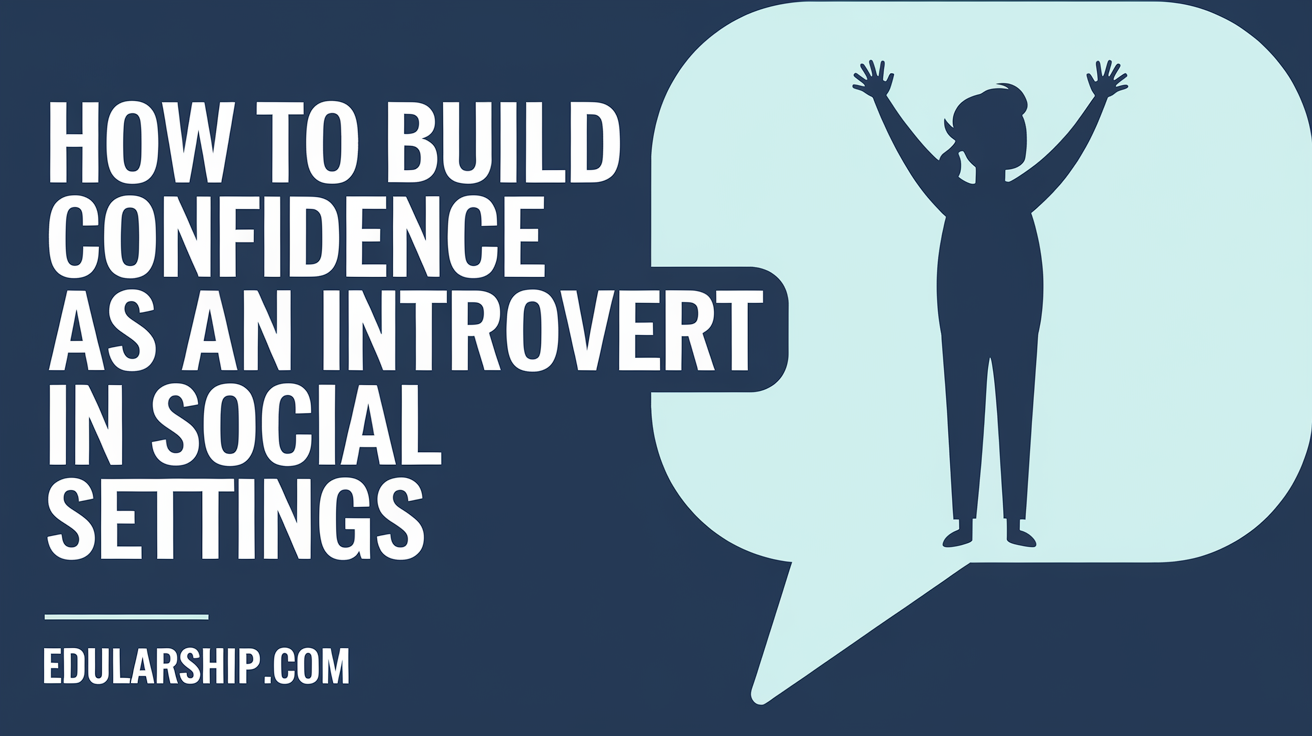Building confidence as an introvert in social settings can be challenging. But it is possible with the right strategies. For introverts, social gatherings can feel overwhelming. The constant chatter and large crowds can drain your energy. Yet, confidence in these situations is crucial for personal and professional growth. This blog post will guide you on how to navigate social settings with ease.
You’ll discover practical tips tailored to introverts. These methods will help you feel more comfortable and self-assured. By the end, you’ll be equipped with tools to face social events confidently. Let’s dive in and transform your social experiences!

Embracing Your Introversion
Many introverts feel overwhelmed in social settings. Embracing your introversion can help. It allows you to build confidence and navigate social situations with ease. Here’s how you can start:
Accepting Yourself
Accepting yourself is the first step in embracing your introversion. Understand that being introverted is not a flaw. It’s a personality trait. Recognize that you have unique qualities. These qualities can be strengths in social settings.
Make a list of what you like about yourself. Focus on these aspects. This helps you see your value and build confidence.
Identifying Strengths
Next, focus on identifying your strengths. Introverts often excel in areas that require deep thinking and listening. These skills are valuable in social settings.
Consider the following strengths:
- Active Listening: You listen more than you speak. This makes others feel heard.
- Thoughtfulness: You think before you speak. This leads to meaningful conversations.
- Empathy: You understand others’ feelings. This helps you connect on a deeper level.
Use these strengths to your advantage. They can help you feel more confident in social settings.

Preparing For Social Interactions
As an introvert, social settings can be challenging. The key to feeling more confident lies in preparation. By setting clear goals and visualizing success, you can navigate social interactions with ease. Let’s explore how these strategies can help you.
Setting Goals
Setting goals before entering a social setting can provide direction. Start with small, achievable objectives. For example, aim to start a conversation with at least one new person.
Here’s a simple table to help you set your goals:
| Goal | Description |
|---|---|
| Start a Conversation | Talk to one new person |
| Ask Questions | Ask at least three open-ended questions |
| Share a Story | Share a personal story relevant to the conversation |
Breaking down goals into smaller steps makes them less daunting. It also provides a sense of achievement as you complete each one.
Visualizing Success
Visualizing success is a powerful tool. Close your eyes and imagine a positive social interaction. Picture yourself speaking confidently and enjoying the conversation.
Follow these steps to practice visualization:
- Find a quiet place to sit.
- Close your eyes and take deep breaths.
- Imagine a successful social interaction in detail.
- Focus on the positive emotions you feel.
Regular practice of visualization can boost your confidence. It helps you feel more prepared and positive about social interactions.
Practicing Active Listening
Building confidence in social settings as an introvert can be challenging. One effective way to feel more at ease is by practicing active listening. This not only makes conversations smoother but also helps you connect better with others. Active listening involves fully focusing on the speaker, understanding their message, and responding thoughtfully. Let’s dive into two key aspects of active listening: focusing on others and responding thoughtfully.
Focusing On Others
When you focus on others, you shift the attention away from yourself. This can reduce anxiety and help you feel more comfortable. Make eye contact with the speaker. Nod to show you are paying attention. These small actions signal that you value what the other person is saying. Avoid distractions like your phone. This shows respect and keeps you engaged in the conversation.
Also, listen for emotions and not just words. Pay attention to the speaker’s tone and body language. These cues often tell more than words alone. Understanding the feelings behind the words can help you respond more empathetically.
Responding Thoughtfully
After listening carefully, respond thoughtfully. This means taking a moment to process what the speaker said. Avoid interrupting or rushing to speak. A well-thought-out response shows you are engaged and interested. It also gives you time to gather your thoughts, which can be helpful if you are introverted.
Ask open-ended questions to keep the conversation going. Questions like “How did that make you feel?” or “What do you think about that?” encourage deeper discussions. They also show that you are genuinely interested in the other person’s perspective.
Remember, your responses don’t have to be perfect. The goal is to show that you care and are listening. Over time, this practice can boost your confidence in social settings.
Starting Small Conversations
Starting small conversations can be challenging for introverts. Engaging in social settings often feels overwhelming. Yet, it’s an essential step in building confidence. Focusing on simple techniques can make a big difference.
Using Openers
Start with easy and friendly openers. A simple “Hi, how are you?” works wonders. Other options include comments on the surroundings. For example, “This place is lovely.” These openers are non-intrusive and easy to respond to.
Another approach is to ask for opinions. Questions like, “What do you think of this event?” encourage others to share. This leads to a natural conversation flow.
Finding Common Ground
Finding common ground makes conversations smoother. Look for shared interests or experiences. Mentioning a mutual hobby or topic can spark a connection. For instance, “I noticed you also enjoy reading. What’s your favorite book?”
Use cues from the environment. If at a conference, discuss the topic at hand. “The last speaker was interesting. What did you think?” Common interests create comfort. They make the conversation engaging for both parties.
Building Genuine Connections
Building genuine connections as an introvert in social settings can be challenging. Yet, it is possible to form meaningful relationships. The key is to focus on quality rather than quantity. By showing interest and maintaining relationships, introverts can thrive in social environments.
Showing Interest
Showing genuine interest in others is crucial. It helps in building strong connections. Listen actively when someone speaks. Make eye contact and nod. Ask follow-up questions to show you care about their thoughts.
Here are some ways to show interest:
- Ask open-ended questions.
- Remember small details shared by others.
- Give compliments that are sincere and specific.
- Share relevant experiences to show empathy.
These simple steps can make a big difference. They help in forming genuine connections.
Maintaining Relationships
Maintaining relationships requires effort. Yet, it is essential for lasting connections. Regular communication is key. Send a message or call to check in.
Consider these tips for maintaining relationships:
| Action | Benefit |
|---|---|
| Send a text or email regularly | Keeps you in touch |
| Plan regular meetups | Strengthens bond |
| Remember important dates | Shows you care |
| Be supportive | Builds trust |
These actions help maintain and nurture relationships. They ensure your connections remain strong.
Managing Social Anxiety
Managing social anxiety is crucial for introverts aiming to build confidence. Social settings can be overwhelming, but there are effective strategies to help ease the anxiety. By focusing on practical techniques, introverts can better navigate these situations.
Breathing Techniques
Deep breathing is a powerful tool to calm your nerves. Inhale slowly through your nose for four seconds. Hold your breath for four seconds. Exhale through your mouth for six seconds. Repeat this process until you feel more relaxed. Controlled breathing helps reduce stress and promotes a sense of calm.
Positive Affirmations
Positive affirmations can shift your mindset. Start your day with statements like, “I am confident” or “I am capable”. These phrases can help change negative thoughts into positive ones. Repeat them before social events to boost your confidence. Over time, these affirmations can help reduce anxiety and increase self-assurance.
Leveraging Alone Time
As an introvert, alone time is crucial. It helps you recharge and reflect. It can significantly boost your confidence in social settings. By effectively using this time, you can prepare yourself for social interactions. This not only makes you feel more comfortable but also more confident.
Recharging Effectively
Recharging is essential for introverts. It’s important to spend alone time in a way that re-energizes you. Here are some tips:
- Engage in a hobby you love.
- Read a book that interests you.
- Practice mindfulness or meditation.
- Take a walk in nature.
Each activity can help you feel more relaxed and ready for social interactions. The key is to choose activities that make you feel happy and calm. This way, you will feel more confident when you are around people.
Balancing Social Life
Balancing your social life is crucial. Too much socializing can drain you. Not enough can make you feel isolated. Finding the right balance is key.
Here are some strategies to help:
- Set boundaries for social interactions. Know your limits.
- Schedule alone time after social events to recharge.
- Choose social activities that align with your interests.
- Prioritize quality over quantity in your social life.
By managing your social life effectively, you can maintain your energy levels. This will help you feel more confident in social settings. Remember, it’s okay to say no to social events if you need alone time.
Seeking Support Networks
Seeking support networks can be a valuable way to build confidence as an introvert in social settings. Connecting with others who share your interests and experiences helps you feel understood and less isolated. Support networks provide a safe space to practice social skills and gain encouragement.
Finding Like-minded Individuals
Finding like-minded individuals can be a great way to build confidence. Look for people who share your interests or hobbies. This common ground makes conversations easier and more enjoyable. You can find these individuals in various places. Online forums and social media groups are good starting points. Attend events and meetups related to your interests. You will likely find people who think like you.
Joining Groups And Clubs
Joining groups and clubs can help you build a support network. These organizations offer regular opportunities for social interaction. Choose groups that align with your passions. This makes it easier to connect with others. Being part of a group gives you a sense of belonging. It also provides a structured way to practice social skills. Many clubs offer activities and events, creating natural opportunities to interact with others.
Conclusion
Building confidence as an introvert takes time and effort. Practice small steps each day. Focus on your strengths and be kind to yourself. Remember, it’s okay to feel nervous. Everyone does at times. Use your unique qualities to your advantage.
Celebrate your progress, no matter how small. With patience and practice, you’ll grow more comfortable in social settings. Keep pushing forward. You are capable of amazing things.

